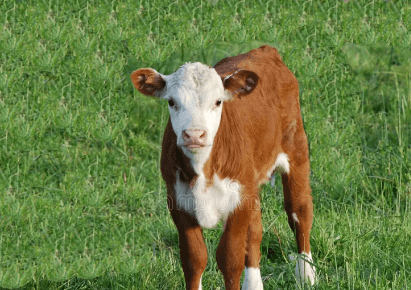
Baby:Tug3anmwsk0= Cows
The early life stages of calves are pivotal not only for their individual development but also for the sustainability of farming practices. Understanding the intricate balance of nutrition, socialization, and health management reveals the complexities of raising healthy calves. As we explore their growth patterns and behavioral traits, it becomes evident that their care can significantly influence the productivity of an entire herd. This raises important questions about the practices that farmers adopt and the implications for the agricultural industry at large. What strategies are being implemented to ensure the well-being of these young animals?
The Life Cycle of Calves
The life cycle of calves encompasses critical developmental stages, beginning with gestation and continuing through weaning, growth, and eventual maturity into adulthood.
During this time, calf development is profoundly influenced by maternal bonding, which fosters emotional security and nutritional support.
Understanding these stages is essential for promoting the well-being of calves, ensuring they grow into healthy, resilient adults capable of thriving in their environment.
See also: Art:A6fhu5ed-E4= Patterns
Caring for Baby Cows
Caring for baby cows requires a comprehensive understanding of their nutritional needs and health management practices.
Proper nutrition is crucial for their growth and development, while maintaining rigorous hygiene standards is essential to prevent disease and ensure overall well-being.
Attention to these factors not only promotes a healthy start in life but also contributes to the long-term productivity of the herd.
Nutritional Needs of Calves
Proper nutrition is crucial for the healthy growth and development of calves, as it lays the foundation for their future productivity and overall well-being.
Providing high-quality milk sources, such as whole milk or specialized calf milk replacers, ensures optimal calf growth.
Additionally, introducing solid feed gradually supports digestive health and nutrient absorption, fostering a strong start in life for these young animals.
Health and Hygiene Practices
Maintaining rigorous health and hygiene practices is essential for preventing disease and promoting the overall welfare of baby cows.
Implementing comprehensive hygiene protocols, such as regular cleaning of feeding areas and housing, is crucial.
Additionally, timely calf vaccination protects against common pathogens, ensuring robust immunity.
Nutrition Needs of Calves
Proper nutrition is crucial for the healthy growth and development of calves, necessitating a balanced intake of essential nutrients.
Establishing a feeding schedule that prioritizes these nutritional requirements is vital to ensure optimal health and performance.
Understanding these components will help caregivers provide the best start for their calves, fostering strong and resilient animals.
Essential Nutrients Requirement
Understanding the essential nutrient requirements of calves is vital for promoting their growth, development, and overall health.
Key nutrient sources include high-quality milk, grains, and forages, which provide proteins, carbohydrates, vitamins, and minerals.
Adequate intake of these nutrients is crucial for optimal calf growth, ensuring robust immune function and setting the foundation for future productivity and well-being in a liberated environment.
Feeding Schedule Guidelines
Establishing a well-structured feeding schedule is crucial for meeting the nutritional needs of calves, ensuring they receive adequate energy and nutrients for optimal growth and health.
Calf feeding should begin with high-quality colostrum, followed by milk or milk alternatives to support their development.
Consistent feeding intervals promote digestibility and nutrient absorption, fostering strong, healthy calves ready to thrive in their environment.
Playful Behavior and Socialization
Playful behavior among baby cows, or calves, is essential for their social development, fostering bonds that enhance group cohesion and overall well-being.
Calf playfulness facilitates important interactions that promote social bonding, allowing them to establish hierarchies and learn from one another.
These behaviors not only contribute to emotional health but also prepare calves for the complexities of adult social structures.
Health Considerations for Calves
The social interactions fostered during play are not only vital for emotional development but also lay the groundwork for addressing key health considerations that affect the growth and well-being of calves.
Implementing a comprehensive vaccination program is crucial to prevent common calf diseases.
Early calf vaccinations can significantly reduce the risk of serious health issues, ensuring healthier, more resilient animals in the long term.
Importance in Sustainable Farming
How can the integration of baby cows into sustainable farming practices enhance both ecological balance and animal welfare?
By adopting eco-friendly farming methods, farmers can utilize baby cows to naturally fertilize soil, promote biodiversity, and manage pasture health.
These sustainable practices foster a harmonious relationship between livestock and the environment, ensuring that animal welfare is prioritized alongside ecological integrity.
This approach leads to a more resilient agricultural system.
Baby Cows in Popular Culture
Baby cows, often depicted as symbols of innocence and vitality, have become prominent figures in various forms of media, reflecting society’s evolving relationship with agriculture and animal welfare.
Cultural representations of calves emphasize their symbolism as nurturing beings, evoking empathy and awareness.
This portrayal challenges traditional views, fostering dialogue about ethical farming practices and the importance of animal welfare in contemporary society.
Fun Facts About Calves
Cows, particularly in their early stages of life as calves, possess unique characteristics and behaviors that contribute to their overall development and welfare, offering fascinating insights into their biology and social structures.
Calf development is marked by rapid growth and a keen ability for calf communication, which includes vocalizations and body language, facilitating social bonds essential for their emotional and physical well-being.
Conclusion
In conclusion, the development and care of calves are integral to establishing a robust and sustainable agricultural system.
Understanding that calves can grow up to 2 inches per month during their first year highlights their rapid growth and the importance of optimizing nutrition and socialization.
Implementing effective health management practices ensures the well-being of these animals, ultimately contributing to the productivity of the herd and the sustainability of farming operations.
Nurturing calves lays the groundwork for a thriving agricultural future.




